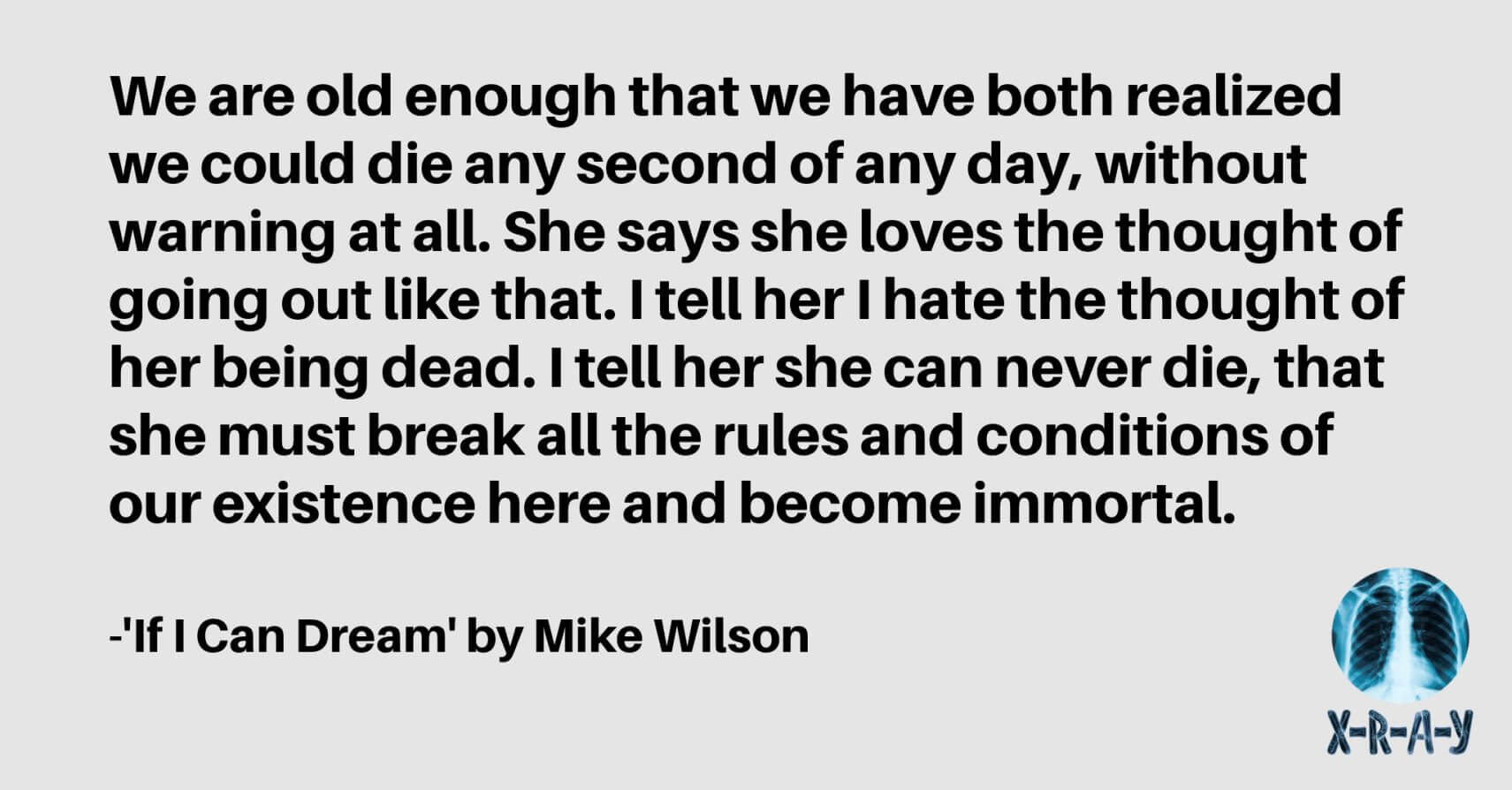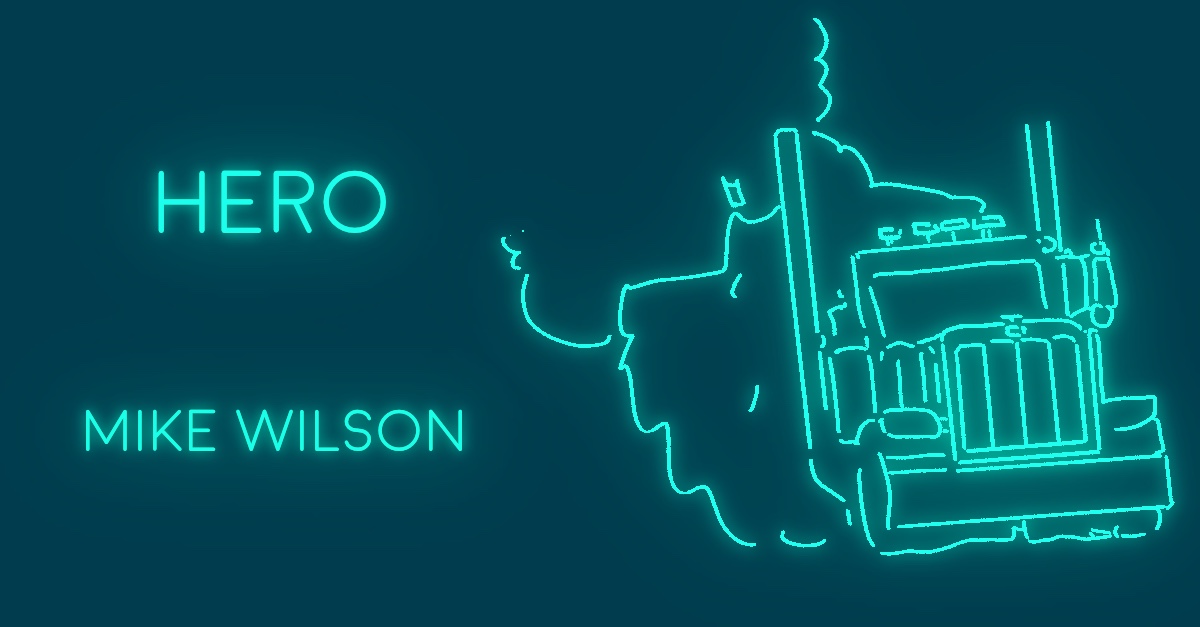
IF I CAN DREAM by Mike Wilson
Did I ever tell you I saw Elvis Presley, years after they said he was dead? Saw him right after I first moved to town, walking through the parking lot of that run down, barely hanging on truck stop over off of Highway 45, a place called The Hungry Hauler. They said he lived in the nearby woods and would come in on occasion to eat and wash up. They were used to him and wouldn’t make a big deal about it, and didn’t like people who did. He was an old man by then, and moved slow any time…

